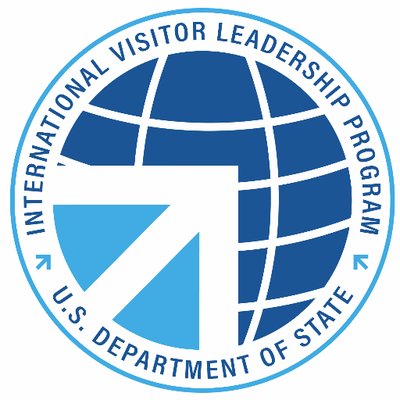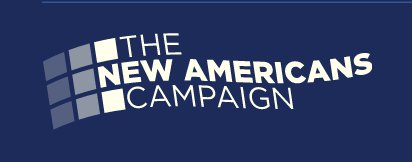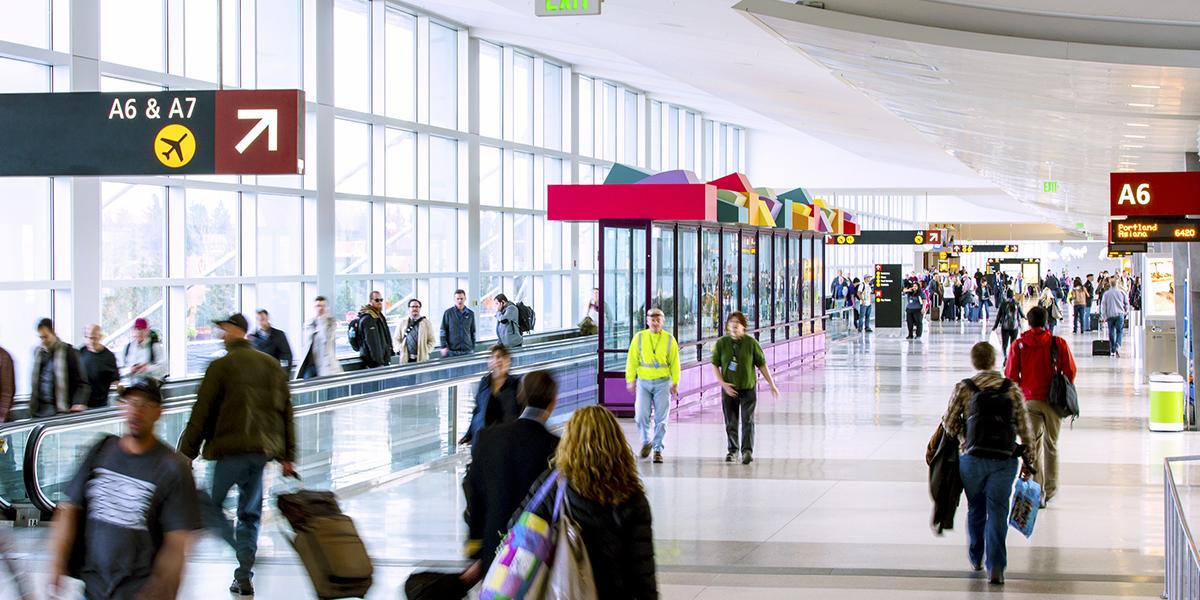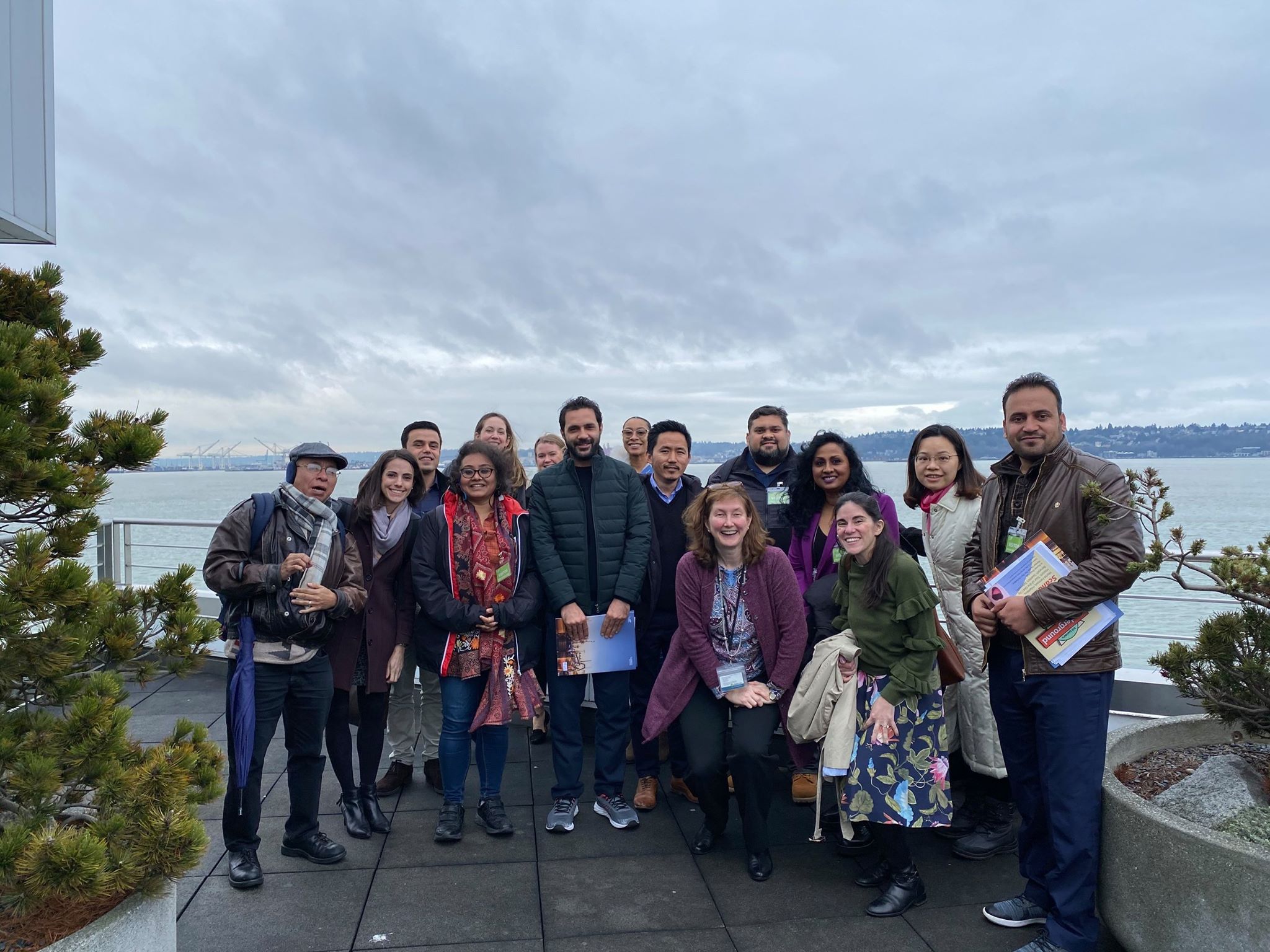New Americans Campaign: The Value of Supporting Newcomers
April 3rd, 2020
 In late February, I had the pleasure of accompanying a delegation visiting Seattle through the International Visitor Leadership Program (IVLP), which is the U.S. Department of State’s premier professional exchange program that allows emerging leaders in a variety of sectors to participate in a three-week exchange in the United States to cultivate lasting relationships with their American counterparts. While in the United States, these IVLP delegates had the opportunity to meet with the U.S. Department of State as well as visit two other U.S. cities before finishing their program in Seattle, Washington.
In late February, I had the pleasure of accompanying a delegation visiting Seattle through the International Visitor Leadership Program (IVLP), which is the U.S. Department of State’s premier professional exchange program that allows emerging leaders in a variety of sectors to participate in a three-week exchange in the United States to cultivate lasting relationships with their American counterparts. While in the United States, these IVLP delegates had the opportunity to meet with the U.S. Department of State as well as visit two other U.S. cities before finishing their program in Seattle, Washington.
This group of eight visitors was here to learn more about “Regional Responses to Refugee and Migration Issues in the Indo-Pacific.” The delegation was comprised of Red Cross field officers, policy advisors, professors, and journalists, and came from Afghanistan, India, Nepal, Sri Lanka, and Taiwan. Their Seattle Program consisted of a holistic array of professional meetings with immigration-focused organizations, including Seattle Counseling Service, the Northwest Immigrant Rights Project, and Refugee Women’s Alliance, among others.
I was intrigued by this particular program because immigration within the United States is an incredibly complex topic. Since President Donald J. Trump took office in 2017, the immigrant population has been greatly impacted by new immigration policy, some of which has led existing pathways to citizenship to become more selective. Applications for asylum or refugee status, Green Cards, Deferred Action for Childhood Arrivals (DACA), and citizenship are often pending for extended periods of time, and deportations remain prevalent, with 267,000 total removals in 2019.
 Furthermore, many newcomers in the United States are uninformed about the immigration legal system, and are unaware what their options are for becoming Legal Permanent Residents or obtaining citizenship. Immigrants in the United States often lack access to resources or services to assist them in successful community integration, including overcoming language barriers, gaining employment or education, and contributing to society in meaningful ways. A number of organizations and individuals are working to not only inform immigrants about the resources available to them, but to also advocate for and defend their rights, and encourage those around them to create an environment that is safe and welcoming for all.
Furthermore, many newcomers in the United States are uninformed about the immigration legal system, and are unaware what their options are for becoming Legal Permanent Residents or obtaining citizenship. Immigrants in the United States often lack access to resources or services to assist them in successful community integration, including overcoming language barriers, gaining employment or education, and contributing to society in meaningful ways. A number of organizations and individuals are working to not only inform immigrants about the resources available to them, but to also advocate for and defend their rights, and encourage those around them to create an environment that is safe and welcoming for all.
While accompanying the visitors during their program, I found the roundtable discussion on the “New Americans Campaign,” hosted by the Port of Seattle, the most inspiring and insightful as speakers passionately addressed the most pressing issues faced by the immigrant community. In May of 2018, the Port of Seattle Commission passed a “Welcoming Port Policy,” which included (among other things) a partnership with OneAmerica, World Relief, and the New Americans Campaign, which is a national collaborative of legal service providers. The objective of the New Americans Campaign is to provide support to the immigrant and refugee community in the Puget Sound Region by encouraging eligible lawful permanent residents to apply for citizenship, and helping transition and resettle refugees new to the area. It is made possible through the combined efforts of three organizations: the Port of Seattle, OneAmerica, and World Relief Seattle. Four representatives across the three organizations met with our visitors to discuss their respective programs and services focused on helping navigate citizenship for the immigrant and refugee population in the region.
Luis Navarro, Director of Workforce Development in the Office of Equity, Diversity and Inclusion at the Port of Seattle, talked about the scale and scope of the Port of Seattle, which is the 4th largest seaport in the United States, while Seattle-Tacoma International Airport (SEA) is the 8th busiest airport in the country. The sheer size and activity of these areas creates an “international gateway,” Navarro stated, explaining the frequent influx of immigrants and refugees, and the importance of fostering a positive community for which to receive such groups. Navarro discussed the Port’s comprehensive efforts to support the immigrant population, as well as the creation of the Office of Equity, Diversity, and Inclusion along with other Port teams, which aim to eliminate barriers, and give minority business owners in the region the opportunities to compete. I enjoyed learning about how the Port is putting their values into action, and is holding their members, and the community responsible for their actions.
Following Navarro, OneAmerica’s Senior Program Manager, Sarah Sumadi, and Integration and Advocacy Manager, Rosana Donoso Barredo, discussed their mission: to build power in immigrant and refugee communities, which translates to political, economic, and organizing power. To achieve this, they highlighted OneAmerica’s citizenship program and its efforts to provide information and opportunities for the eligible immigrant population to obtain citizenship. They explained the benefits of naturalization, to both the immigrant community and to the U.S. Government, some of which include economic stability, citizenship for children, eligibility for government jobs, the freedom to travel, and the right to vote. On the other hand, they also explained how daunting, expensive, and difficult obtaining citizenship can be, especially without the proper resources. OneAmerica’s efforts to encourage and educate immigrants to pursue naturalization includes hosting citizenship clinics, and recording and posting public service announcements at the Seattle-Tacoma International Airport (with the assistance and approval of Port of Seattle Commissioners). Sumadi and Barredo invited us to think about the benefits of investing in citizenship, and in encouraging the immigrant and refugee population to participate and contribute to society. OneAmerica’s work highlights one very simple, yet fundamental belief: immigrants are valuable members of our society.

Chitra Hanstad, the Executive Director of World Relief Seattle, gave an overview of their partnership with the Port of Seattle, which has allowed refugee resettlement case workers to meet refugees immediately when they arrive at the Seattle-Tacoma International Airport gates and help them transition into their new lives. She also reviewed troubling statistics about the drastic decline of refugee resettlement cases in the United States, particularly under the constraints of our current administration. “World Relief,” Hanstad further explained, “works to provide essential services to the immigrant and refugee community, such as welcome and community integration, next generation support, economic empowerment, legal and justice advocacy, and spiritual care” (even within the Northwest Detention Center, where many immigrant and refugees struggle to find the space to practice their religions). Hanstad inspired us with moving stories about refugees she has personally helped resettle, and she encouraged us to think about our own families, and consider the children that have been impacted by anti-immigrant and refugee policy. She reminded us why it is important to work together, and continue fighting and believing in making a difference.
I found this roundtable discussion to be hopeful and empowering because it demonstrated how collaboration between various organizations can make a significant difference in the scope of immigrant advocacy. Following the discussion, the international visitors who were present reacted with thoughtful questions and comments, and connected their individual efforts with those of the New Americans Campaign. Overall, the discussion illuminated the immense efforts made by these organizations to help immigrants who have been impacted by anti-immigrant and refugee legislation passed in recent years, and to continue to assist the vulnerable migrant population in leading safer, more productive and fulfilling lives in the United States. I believe that I, and other participants in the discussion, walked away with the knowledge needed to join these efforts.

About the author: Avery Closser is an intern with the International Visitor Program at the World Affairs Council of Seattle and a recent graduate from the University of Puget Sound, where she received her B.A. in International Political Economy and Spanish.